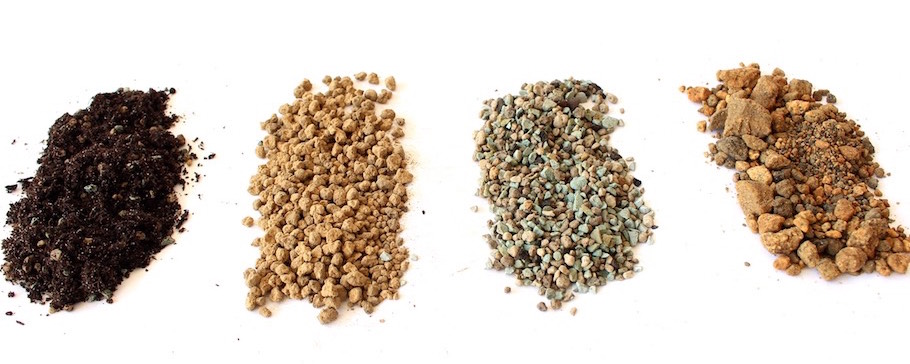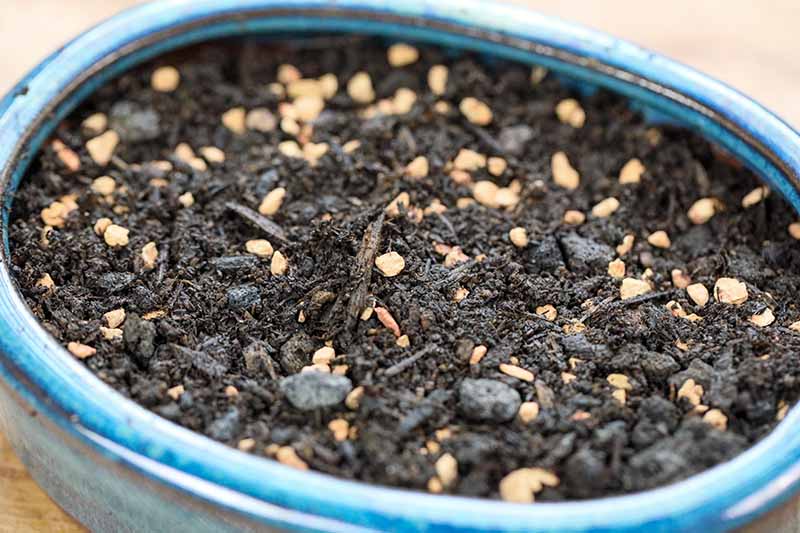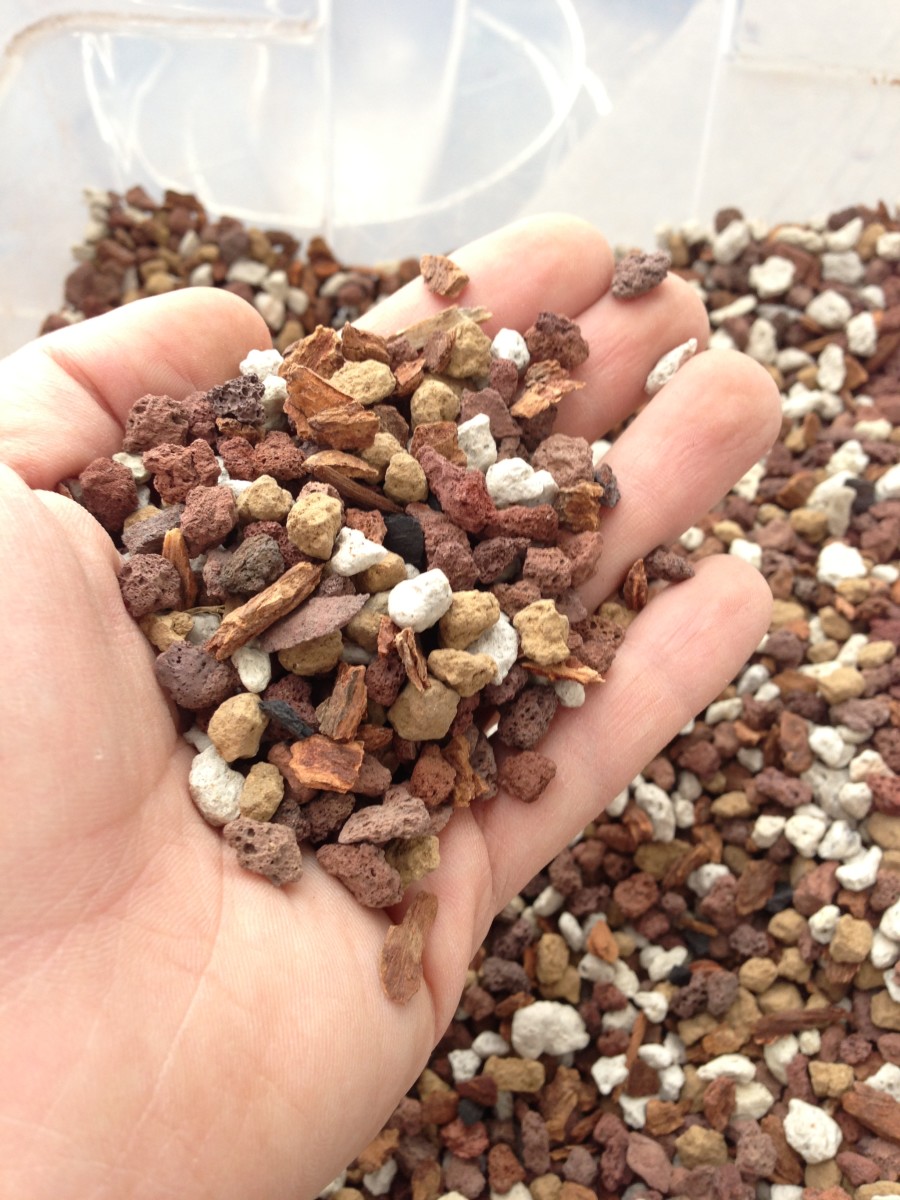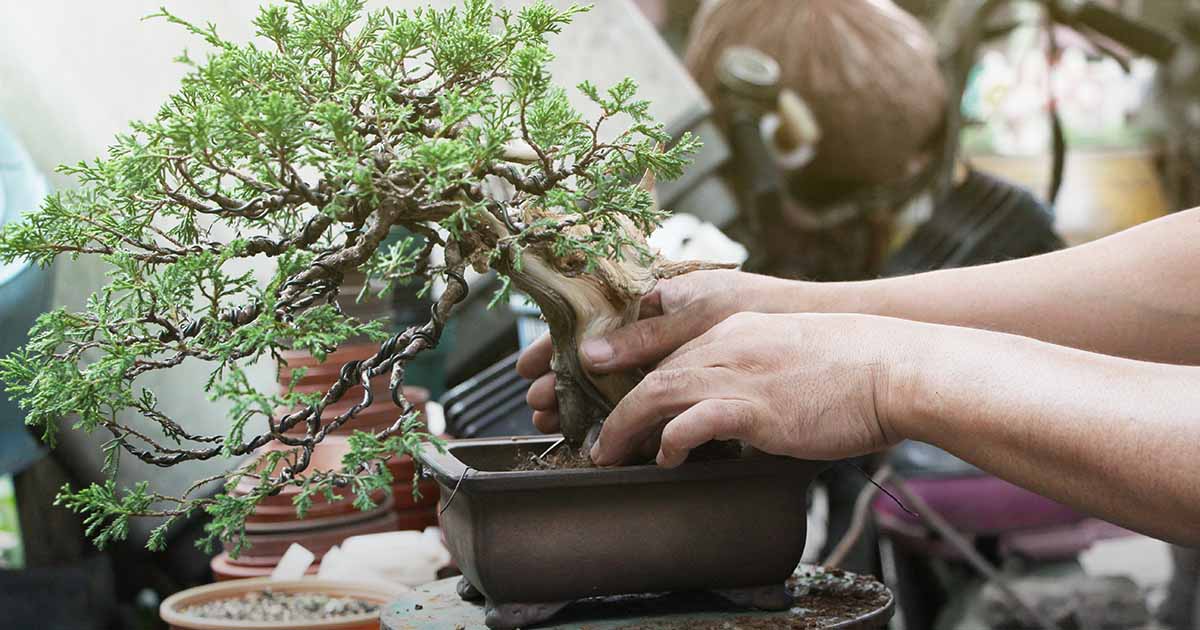On this page, we'll explore the differing types of soil and substrates used in bonsai cultivation, like natural and inorganic possibilities.
We are going to also find out recommended soil mixtures for many bonsai species, which include deciduous, coniferous, and indoor kinds. From akadama and pumice to moss and river sand, we'll dive into the fascinating earth of bonsai soil and assist you realize why It can be an essential Portion of cultivating these exquisite trees.

Bonsai soil
What is bonsai soil?
Bonsai soil is a specialized type of soil that is specifically formulated for growing and maintaining bonsai trees. Unlike regular garden soil, bonsai soil is well-draining and provides the necessary nutrients and moisture balance for the tree's root system. The composition of bonsai soil is carefully designed to meet the unique needs of bonsai trees, ensuring their health and longevity.
The importance of bonsai soil
The choice of soil plays a crucial role in the success of your bonsai tree. The right soil provides optimal drainage, allowing excess water to flow freely and preventing root rot. It also promotes a healthy and well-developed root system, which is essential for the overall health and growth of the tree. Bonsai soil retains moisture while allowing air to reach the roots, striking the perfect balance for the tree's needs. Choosing the right bonsai soil is essential for maintaining a healthy and thriving bonsai tree.
Bonsai substrates
What are bonsai substrates?
Bonsai substrates refer to the different materials that can be used to create the ideal soil composition for bonsai trees. These substrates are carefully chosen to meet the specific needs of different species of bonsai trees and to ensure proper water drainage and nutrient availability.
Different types of bonsai substrates
There are various types of bonsai substrates available, each with its own unique characteristics and benefits. Some common bonsai substrates include:
- Organic materials: These include ingredients such as bark, peat moss, and coconut coir. Organic substrates help retain moisture and provide essential nutrients to the bonsai tree.
- Inorganic elements: These include factors like pumice, lava rock, and akadama. Inorganic substrates provide superb drainage, making certain that extra water doesn't accumulate around the roots of your bonsai tree.
- Soil amendments: They're substances that are additional into the soil combination to improve its Qualities. Samples of soil amendments contain perlite, vermiculite, and sand. They improve the soil's aeration, drinking water-holding capacity, and nutrient availability.
By comprehending the different sorts of bonsai substrates and their Attributes, you'll be able to pick out the most suitable 1 for your bonsai tree's desires.
Natural or Inorganic Soils
Organic and natural soils for bonsai
Organic and natural soils for bonsai are composed of purely natural components including bark, peat moss, coconut coir, and compost. These materials give a loaded source of nutrients with the bonsai tree and advertise wholesome root progress. Organic and natural soils even have superior water retention Attributes, making certain which the tree gets suitable dampness in between watering sessions. On the other hand, it's important to notice that natural soils may break down over time and turn into compacted, leading to bad drainage and probable root issues.
Inorganic soils for bonsai
Inorganic soils for bonsai encompass products like pumice, lava rock, akadama, and soil amendments like perlite or vermiculite. These components have exceptional drainage properties, stopping waterlogged soil and marketing aeration round the roots. Inorganic soils are chosen by many bonsai enthusiasts because of their longevity and talent to supply a secure environment for that bonsai tree's root procedure. Nevertheless, They might call for additional Regular watering and additional fertilization, as they don't maintain just as much dampness or nutrients as natural soils.
Positives and negatives of working with organic and inorganic soils for bonsai
Picking between natural and inorganic soils on your bonsai tree relies on different elements, such as the particular species of tree, your local climate, and personal Tastes. Allow me to share the pluses and minuses of each and every:
Natural and organic soils:
- Professionals: Present nutrients, very good water retention, boost nutritious root progress.
- Negatives: Could break down after some time, prospective for bad drainage Otherwise properly preserved.
Inorganic soils:
- Pros: Excellent drainage, long-Long lasting, stable ecosystem for roots.
- Disadvantages: Fewer water retention, may perhaps call for a lot more Regular watering and fertilization.
By contemplating the pluses and minuses of equally organic and natural and inorganic soils, you can make an educated selection determined by the specific requirements of your respective bonsai tree.
Soil factors
Critical elements of bonsai soil
Bonsai soil is typically composed of a few main elements: grit, natural and organic matter, and clay. These components operate with each other to produce The perfect soil construction to the bonsai tree's root method.
- Grit: Grit, such as sand or perlite, delivers drainage and aeration in the soil. It helps protect against waterlogging and allows air to reach the roots.
- Natural and organic matter: Organic make any difference, for instance compost or bark, presents nutrients to your bonsai tree. What's more, it can help retain dampness and Enhance the soil's All round framework.
- Clay: Clay particles deliver some h2o retention qualities and assistance bind the soil alongside one another. Nonetheless, too much clay may lead to inadequate drainage and compaction.
Job of every soil component
Just about every soil ingredient performs a vital role in developing a effectively-well balanced and healthy atmosphere for that bonsai tree's roots.
- Grit: Grit provides the required drainage and aeration while in the soil. It prevents the roots from sitting down in stagnant h2o, decreasing the risk of root rot and promoting Total root health and fitness.
- Organic and natural make any difference: Natural matter presents important nutrients towards the bonsai tree. It aids in humidity retention and contributes to the general structure in the soil.
- Clay: Clay particles enable bind the soil together and provide some water retention ability. Having said that, it is important to harmony the quantity of clay to prevent concerns like lousy drainage and compaction.
By being familiar with the roles of each and every soil ingredient, you could make a well balanced bonsai soil mix that satisfies the precise wants of your respective tree.

Recommended Bonsai soil mixtures
Common bonsai soil mixtures
There are several common bonsai soil mixtures that have been proven effective for various types of bonsai trees. These mixtures typically consist of a combination of inorganic substrates, organic matter, and soil amendments.
Some of the commonly used bonsai soil mixtures include:
- Akadama, pumice, and lava rock: This mixture is popular among bonsai enthusiasts for its excellent drainage and water retention properties.
- Akadama, lava rock, and organic and natural make any difference: This mixture combines some great benefits of inorganic substrates While using the nutrient-prosperous Houses of organic and natural matter.
- Pumice, perlite, and bark: This mixture gives excellent drainage and aeration though retaining some humidity and providing nutrients.
These are just a couple examples of bonsai soil mixtures, and the ideal combination will rely upon the precise wants of your respective bonsai tree as well as your weather.
Variables to take into consideration when deciding upon a bonsai soil mixture
When picking out a bonsai soil combination, it is vital to take into account the subsequent components:
- Species of bonsai tree: Distinct species have diverse humidity and nutrient specifications. Analysis the specific demands of your respective tree to select a soil combination that satisfies its specifications.
- Climate: The local climate you reside in can have an affect on the humidity retention Houses from the soil. Evaluate the average humidity and temperature in your neighborhood When selecting a soil mixture.
- Watering behavior: Your personal watering behavior and regime ought to align With all the soil combination you end up picking. Some mixtures demand a lot more Regular watering, while others keep dampness for longer periods.
- Spending budget: Some soil components could be dearer than Some others. Look at your budget when selecting a soil combination.
By using these things into consideration, you may opt for a bonsai soil mixture that provides the very best growing ailments for your personal tree.
Deciduous Bonsai soil
Most effective soil composition for deciduous bonsai
Deciduous bonsai trees, which include maple or birch, have distinct soil specifications to guidance their growth and wellness. The best soil composition for deciduous bonsai ordinarily includes a combination of organic and natural make a difference, inorganic substrates, and soil amendments.
A proposed soil composition for click here deciduous bonsai may involve:
- Akadama: Supplies very good drinking water retention though allowing for for drainage. What's more, it releases nutrients slowly over time.
- Pumice: Promotes aeration and drainage in the soil, blocking waterlogging.
- Bark or peat moss: Provides organic and natural make a difference for the soil, furnishing nutrients and humidity retention.
This soil composition makes sure that the roots of deciduous bonsai trees obtain the right harmony of moisture, nutrients, and oxygen for ideal growth.

Coniferous and Pine soil
Ideal soil mixture for coniferous and pine bonsai
Coniferous and pine bonsai trees have specific soil requirements due to their water retention needs and preference for acidic soil. An ideal soil mixture for coniferous and pine bonsai should provide good drainage while retaining moisture and maintaining the desired pH level.
A recommended soil mixture for coniferous and pine bonsai may include:
- Akadama: Provides excellent water retention while allowing for sufficient drainage. It releases nutrients slowly over time.
- Pumice: Encourages aeration and drainage while in the soil, avoiding waterlogged roots.
- Peat moss: Adds natural and organic issue and acidity towards the soil, creating an ideal pH amount for coniferous and pine trees.
This soil mixture makes certain that the roots of coniferous and pine bonsai trees get the appropriate equilibrium of moisture, nutrients, and acidity for their particular requirements.
Akadama
What's akadama?
Akadama is really a kind of clay soil which is extensively Employed in bonsai cultivation. It truly is recognized for its excellent water retention Houses, which be certain a gentle offer of moisture for the bonsai tree's roots. Akadama is additionally prized for its capability to release nutrients bit by bit eventually, providing a reliable supply of nourishment for the tree.
Great things about working with akadama in bonsai soil
Employing akadama in bonsai soil presents quite a few Gains:
- Drinking water retention: Akadama has Extraordinary drinking water retention Houses, letting it to hold dampness without getting waterlogged. This makes certain that the bonsai tree's roots get a regular source of water, marketing healthier growth.
- Nutrient release: Akadama bit by bit releases nutrients in the soil after some time, offering a consistent source of nourishment with the bonsai tree. This decreases the need for frequent fertilization and assists retain a well balanced nutrient profile.
- Aeration: Irrespective of its drinking water retention capabilities, akadama also gives enough aeration on the bonsai tree's roots. It makes it possible for air to get to the root method, blocking problems like root rot as a consequence of insufficient oxygen.
By incorporating akadama to the bonsai soil, you could build an exceptional escalating environment for your tree, guaranteeing its wellbeing and vitality.

Lava rock
How lava rock benefits bonsai soil
Lava rock is a popular component in bonsai soil mixtures due to its excellent drainage and aeration properties. It is typically used in conjunction with other substrates to create the ideal soil composition for bonsai trees.
The benefits of lava rock in bonsai soil include:
- Drainage: Lava rock provides excellent drainage, preventing waterlogging and ensuring that excess water flows freely through the soil. This helps prevent root rot and provides a healthy environment for the roots to thrive.
- Aeration: The porous character of lava rock allows air to circulate within the soil, giving oxygen into the bonsai tree's root system. Proper aeration is essential for balanced root advancement and In general tree progress.
- Longevity: Lava rock is often a long lasting material that does not stop working quickly. This ensures that the soil structure stays stable after some time, lessening the need for Repeated soil replacements.
Lava rock is offered in several dimensions and shapes, letting for customization depending on the precise desires of your bonsai tree and soil demands.
Differing kinds of lava rock
You will find differing types of lava rock which might be used in bonsai soil mixtures, which includes:
- Black lava rock: Black lava rock is actually a generally utilised product in bonsai soil mixtures. It offers superb drainage Attributes and provides an aesthetic component to the general presentation of your bonsai tree.
- Red lava rock: Crimson lava rock is an additional common preference in bonsai soil mixtures. It offers very similar drainage and aeration Advantages as black lava rock but has a distinct reddish shade that provides Visible desire towards the container.
Both of those black and red lava rocks are extensively obtainable and might be effortlessly incorporated into your bonsai soil combination.
Potting
Vital tricks for effective bonsai potting
Potting is actually a vital system in bonsai cultivation, as it specifically impacts the overall health and enhancement with the tree's roots. Below are a few critical methods for prosperous bonsai potting:
- Pick the ideal pot sizing: Select a bonsai pot that allows for root growth although however furnishing a snug fit. Stay clear of pots which might be far too substantial, because they can result in extreme soil humidity and lousy root progress.
- Use bonsai wire: Protected the tree from the pot employing bonsai wire to be sure stability. This helps prevent the tree from shifting or becoming uprooted in the course of watering or powerful winds.
- Trim and unfold the roots: In advance of potting the bonsai tree, diligently trim and unfold out the roots. This encourages outward advancement and prevents root tangling or root-certain concerns.
- Include mesh screens: Place mesh screens over the drainage holes at The underside on the pot to circumvent soil erosion and guarantee good drainage.
- Use fresh bonsai soil: When potting, normally use fresh bonsai soil to deliver the necessary nutrients and ideal rising disorders for that roots.
By adhering to these crucial suggestions, you can be certain An effective potting process and endorse the general wellness and growth within your bonsai tree.
The position of bonsai pots in soil moisture Command
Bonsai pots Enjoy a crucial job in soil dampness Regulate, immediately impacting the well being and progress in the tree. Bonsai pots are typically shallow and also have drainage holes, permitting excessive water to flee and avoiding the soil from turning into waterlogged.
The look of bonsai pots promotes evaporation and air circulation, which aids regulate soil humidity amounts. The shallow depth and wide opening of your pot expose far more surface place in the soil to the air, aiding in moisture evaporation. This prevents the roots from sitting down in excessively moist soil, lessening the chance of root rot and also other drinking water-connected difficulties.
On top of that, the drainage holes in bonsai pots allow for any excessive h2o to escape, stopping waterlogged soil and marketing aeration within the roots. Proper aeration is essential for the health and development of the root process, guaranteeing the bonsai tree gets the necessary oxygen for expansion.
By utilizing bonsai pots suitable for powerful moisture Handle, you are able to build a favorable natural environment for the bonsai tree's roots and boost its overall overall health and vitality.
In summary, selecting the appropriate bonsai soil is significant with the results and wellness within your bonsai tree. Knowledge the different types of bonsai substrates, the function of organic and inorganic soils, the key factors of bonsai soil, and the assorted recommended soil mixtures can assist you provide the optimum rising conditions to your bonsai tree. No matter if you do have a deciduous or coniferous bonsai, incorporating resources like akadama and lava rock can improve the soil's drainage check here and nutrient availability. In addition, listening to potting methods and applying bonsai pots designed for humidity control will more guidance the flourishing development of your bonsai tree. With proper comprehending and implementation of bonsai soil procedures, you could enjoy the splendor and artistry of bonsai cultivation For many years to return.
